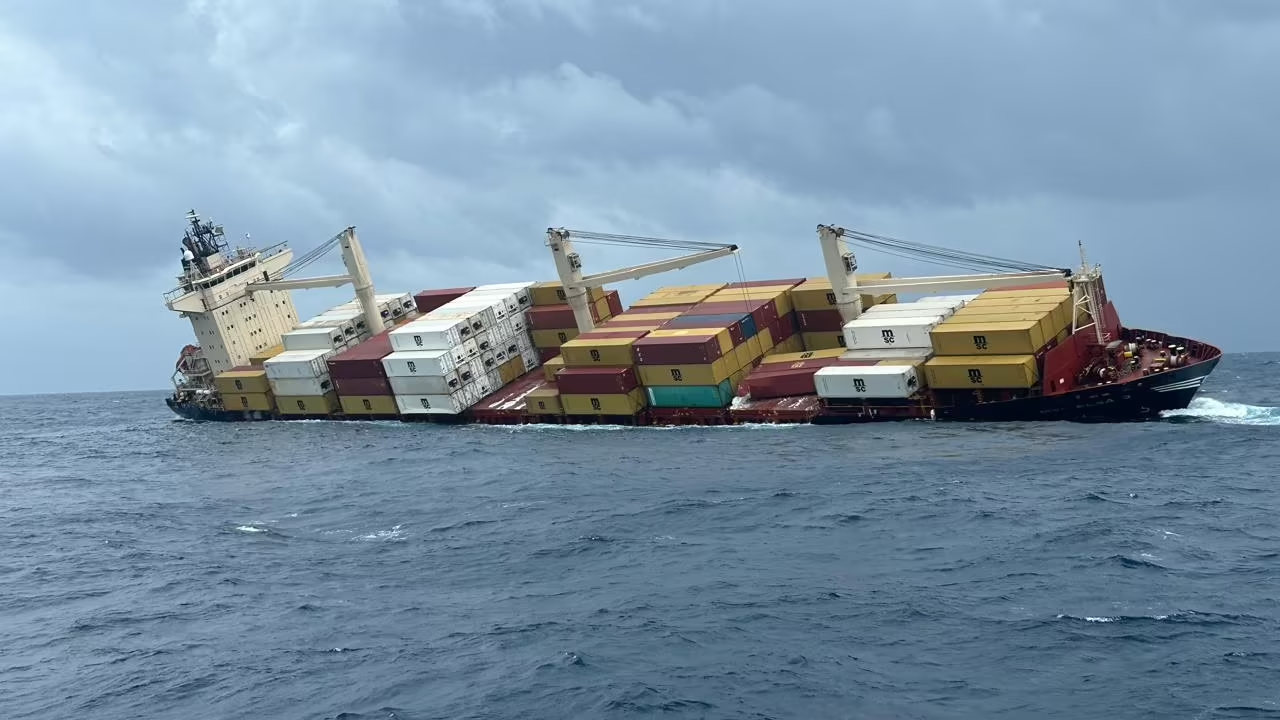The recent disaster involving the Liberian-flagged container ship MSC ELSA 3, which encountered severe distress off the coast of Kochi, Kerala, has precipitated a complex environmental crisis and inflicted considerable socio-economic distress upon the region’s vulnerable coastal communities. This incident, bearing an unsettling resemblance to the catastrophic X-Press Pearl disaster that ravaged Sri Lankan waterways just four years prior, serves as a stark and urgent reminder of the shared oceanic vulnerabilities across South Asia. It underscores the imperative for robust international frameworks governing accountability, rapid response protocols, and equitable compensation mechanisms in the face of escalating maritime risks.
The MSC ELSA 3, laden with 640 containers, including a significant consignment of hazardous substances and specifically 12 containers of highly reactive calcium carbide, tragically sank off Kochi on May 25th. This unfortunate event occurred mere years after the X-Press Pearl’s calamitous sinking offshore Colombo. The immediate environmental fallout from the MSC ELSA 3 incident, marked by the spillage of substantial quantities of fuel, hazardous chemicals, and plastic pellets into the marine environment, triggered a high-alert response from the Indian Coast Guard. Fears of widespread environmental contamination are palpable, threatening the fragile marine ecosystem along Kerala’s southern coastline and potentially undermining efforts towards eco-friendly coastal development.
The presence of calcium carbide poses a particularly insidious dual threat. Upon contact with water, this substance reacts vigorously to produce calcium hydroxide and highly flammable acetylene gas. The subsequent increase in water alkalinity, resulting from altered pH levels, can severely disrupt aquatic life, jeopardising their well-being and long-term survival. The timing of this disaster is profoundly distressing for Kerala’s fishing communities, who are already grappling with significant financial hardships exacerbated by the annual monsoon season. They now face a new fishing ban and the looming specter of a precipitous decline in consumer trust in local seafood, highlighting the inequitable burden borne by these communities.
Beyond the immediate chemical hazards, a more pervasive and insidious threat emerged as tonnes of plastic nurdles, released from the sunken containers, began to wash ashore on beaches across Southern India. Initially observed in Kerala, these ubiquitous plastic pellets soon appeared over 100 kilometres away in Kanyakumari and various parts of Tamil Nadu. Propelled by the formidable Southwest Monsoon winds and powerful ocean currents, these nurdles eventually traversed maritime boundaries, reaching the northern coastlines of Sri Lanka, with field observations confirming significant accumulations along the southern coast of Mannar, from Southbar to Olaithoduvai.
These nurdles, or plastic pellets, are far more destructive than conventional marine debris. Their porous structure allows them to absorb toxic substances from the seawater, effectively becoming miniature poison pills. Marine organisms, tragically mistaking these nurdles for food, ingest them, introducing harmful chemicals into the marine food web. Once in the environment, these resilient microplastics can persist for decades, perpetuating long-term harm to marine biodiversity and posing potential risks to human health through seafood consumption. Research into the aftermath of the X-Press Pearl disaster has chillingly revealed the presence of nurdles in the guts of fish and inside shellfish months after the incident, serving as a grim harbinger of the potential long-term ecological damage from the Kochi spill.
The parallels between the MSC ELSA 3 incident and the X-Press Pearl disaster are undeniable, revealing a shared oceanic vulnerability that transcends national borders. The X-Press Pearl, which caught fire and sank off Sri Lanka on May 20, 2021, released over 100 billion plastic nurdles and a dangerous cargo of chemicals into the ocean. This catastrophe led to an extensive fishing ban and a dramatic decline in local seafood consumption, devastating coastal livelihoods. The wreckage contaminated pristine coastal habitats, including beaches, coral reefs, and vital seagrass beds. The sheer volume of nurdles polluted Sri Lankan beaches for months, resulting in widespread environmental damage, severe disruption to fishing livelihoods, and mass mortality of marine life, with 251 turtles, 28 dolphins, and 5 whales found stranded along the Sri Lankan coastline within just two months. Even today, four years later, Sri Lankan fishing villages continue to grapple with the lingering effects and an ongoing struggle for fair compensation.
As coastlines across South Asia face a new chapter in the relentless battle against marine plastic pollution, with the tide of plastic nurdles rising once again, this situation serves as a grim reminder that transboundary marine pollution continues to pose profound challenges for island nations and coastal communities. The livelihoods of countless fishermen and women, and indeed the ecological health of our shared Indian Ocean, are increasingly imperilled by these repeated assaults on marine ecosystems. Like the X-Press Pearl incident before it, the sinking offshore Kochi starkly highlights how coastal communities disproportionately bear the brunt of these avoidable tragedies in the absence of comprehensive international frameworks for accountability, rapid response, and equitable compensation.
As Kerala navigates the immediate challenges stemming from this recent tragedy, strengthening regional cooperation becomes paramount. It is critical to ensure that the bitter lessons learned from past experiences are swiftly translated into concrete, actionable strategies to prevent similar disasters in the future. Protecting our shared ocean, fostering sustainable coastal economies, and ensuring the well-being of all communities reliant on healthy marine ecosystems demands a collective, proactive approach towards zero net carbon and eco-friendly maritime practices. Only through such concerted global and regional efforts can we truly safeguard our oceans and build resilient, equitable cities for generations to come.
Also Read: UPEIDA Bans Land Transactions to Fast-Track Noida Industrial Corridor


